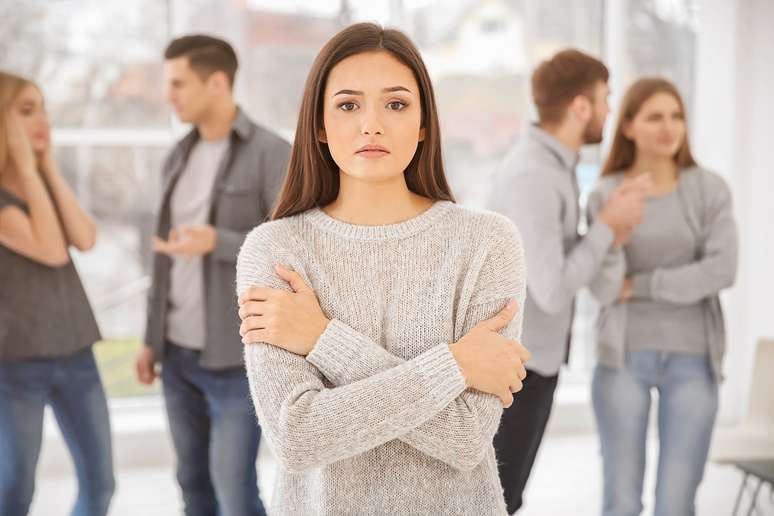The expert explains what social phobia is and how it can affect individual development and quality of life
Interaction and the ability to relate are certainly pillars of the human experience, based on communication and the exchange of information for one’s development. As a result, over time, people have been able to do so create healthy connections that not only offered social or emotional support, but also characterized a sense of belonging. However, difficulties in relating to others are not exactly isolated cases and can end up generating a condition called anxiety social or social phobia.
html[data-range=”xlarge”] figure image img.img-22344d2f4044bfe933f78fd68428f003snolmaxx { width: 774px; height: 516px; }HTML[data-range=”large”] figure image img.img-22344d2f4044bfe933f78fd68428f003snolmaxx { width: 548px; height: 365px; }HTML[data-range=”small”] figure image img.img-22344d2f4044bfe933f78fd68428f003snolmaxx, html[data-range=”medium”] figure image img.img-22344d2f4044bfe933f78fd68428f003snolmaxx { width: 564px; height: 376px; }HTML[data-range=”small”] .article__image-embed, html[data-range=”medium”] .article__image-embed {width: 564px; margin: 0 automatic 30px; }
Although the Brazilian population is known as highly receptive and warm, it is also one of the most anxious in the world, as the World Health Organization has already highlighted, but what is social anxiety? Psychologist Cynara Barreto (CRP 06/81741) explains what it is and her symptoms.
“A social anxietyalso known as social phobia, it’s a type of intense anxiety that occurs in various social situations, whether related to social interactions or performance, and cause excessive suffering or a significant impact on the person’s daily life. This condition involves the fear of being negatively evaluated and the feeling of inability to behave appropriately, leading to embarrassing situations and the fear of disapproval and rejection from others,” says the specialist.
The psychologist also says that, in this panorama, there are two subtypes of phobias, classified as extended, when the individual fears or avoids most, if not all, social situations; and the circumscribed, a narrower anxiety linked to specific situations such as driving or speaking in public. Cynara also mentions the most important symptoms, according to the Diagnostic and Statistical Manual of Mental Disorders (DSM-5), and underlines that the diagnosis also has to do with their persistence:
- Feeling intense fear or excessive anxiety in social situations where the person may be observed or evaluated by others;
- Maintain a persistent worry of being judged negatively by others;
- Being afraid of social situations or actively avoiding them;
- Feeling excessive anxiety or distress before, during, or after feared social situations;
- Recognize that the fear experienced is excessive or irrational;
- Observe significant interference with daily activities, work performance, school, or relationships due to social anxiety.
How it affects individual development and quality of life
“Social anxiety can have a significant effect individual development due to a number of reasons. First, it tends to undermine self-esteem and self-image, causing the person to develop a negative view of themselves. Additionally, avoidance of social situations limits opportunities to learn and practice social skills essential for personal and professional development.
In the educational and professional context, fear of social interactions can harm academic performance and limit opportunities for growth. Social anxiety can also make it difficult to make decisions and express opinions, negatively affecting your ability to deal with challenges and conflicts,” says Cynara.
About well beingthe expert emphasizes: “Avoidance of social events and recreational activities due to social anxiety limits opportunities to make new friends, expand support networks and try new experiences. Social phobia can limit the search for independence and autonomy, such as living alone, traveling or making important decisions. This results in an overall impact on emotional well-being, with an increased risk of depression and other mental health problems. Finally, social anxiety can make it difficult to achieve personal goals and self-realization, impeding personal growth and satisfaction.”
Adequate treatment
In closing, the psychologist reminds that seeking professional support is an essential part of treatment, as medical experience will make a difference in the approach and monitoring.
“The most effective approach involves the combination of pharmacological treatment and psychotherapy such as cognitive-behavioral and contextual therapies: acceptance and commitment therapy and compassion-focused therapy. Drug treatment includes a variety of medications, depending on the psychiatrist’s evaluation. Each patient receives a personalized prescription.
Likewise, the Psychotherapeutic treatment is adapted to each patient, according to the psychotherapist’s assessment. It can involve training social skills, relaxation techniques, exposure to feared situations and changing distorted thought patterns,” concludes the expert.
Atma, your partner in the journey of self-knowledge.
- More than 1000 exclusive contents. Download the application.
Source: Terra
Ben Stock is a lifestyle journalist and author at Gossipify. He writes about topics such as health, wellness, travel, food and home decor. He provides practical advice and inspiration to improve well-being, keeps readers up to date with latest lifestyle news and trends, known for his engaging writing style, in-depth analysis and unique perspectives.








